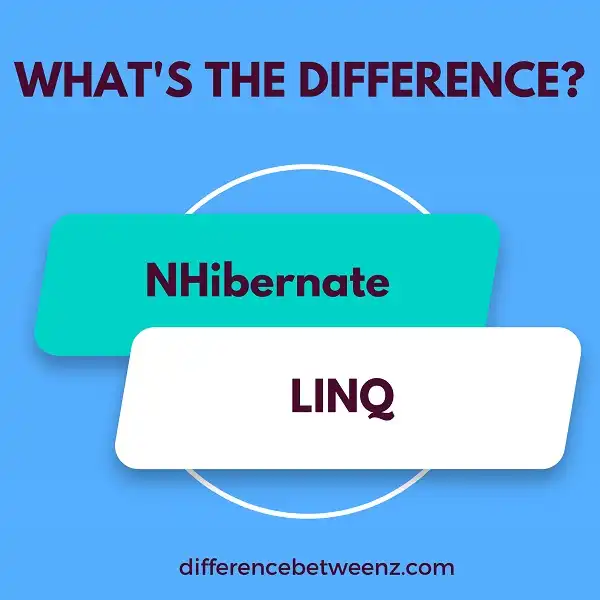LINQ and Nhibernate are both object-relational mapping (ORM) tools that allow developers to work with data stored in relational databases using .NET objects. Both have their advantages and disadvantages, but which one is the best for your project? Let’s take a look at the differences between LINQ and NHibernate.
What is NHibernate?
NHibernate is an object-relational mapper (ORM) for the Microsoft .NET framework. It provides a high-level abstraction over the relational model, allowing developers to work with objects rather than database tables and columns. NHibernate also provides a powerful query engine, allowing developers to express complex queries in a concise and natural way. In addition, NHibernate supports lazy loading and caching, which can improve performance by avoiding unnecessary round-trips to the database. NHibernate is widely used in enterprise applications and is considered to be one of the most mature ORMs available for .NET development.
What is LINQ?
LINQ (Language-Integrated Query) is a query language that was designed to be used with the .NET Framework. It provides a consistent programming model for accessing data from various data sources, such as databases, XML documents, and objects in memory. LINQ can be used to query data in Visual Basic or C#. In addition, LINQ includes a set of tools that make it easy to write LINQ queries and translate them into SQL or other languages. LINQ is an important part of the .NET Framework and is essential for developers who want to take advantage of the rich data-access capabilities of the platform.
Difference between Nhibernate and LINQ
Nhibernate is a popular object-relational mapping (ORM) tool for the .NET platform. LINQ is a Microsoft query language that can be used with a variety of data sources, including SQL databases. Both Nhibernate and LINQ can be used to query and update data. However, there are some key differences between the two tools. Nhibernate is geared towards developers who want more control over their SQL queries. LINQ, on the other hand, is designed to provide a more declarative way of working with data.
As a result, LINQ may be more suitable for developers who are less experienced with SQL. NHibernate also offers a wider range of features than LINQ, such as support for lazy loading and caching. However, LINQ is often seen as being easier to learn and use than NHibernate. Ultimately, the decision of which tool to use will come down to the specific needs of the project.
Conclusion
LINQ is a library that was introduced by Microsoft in 2006 to make it easier for developers to write queries against objects. NHibernate is an open-source ORM tool that was created before LINQ and has been around since 2003. In this article, we’ve outlined the key differences between these two technologies.


